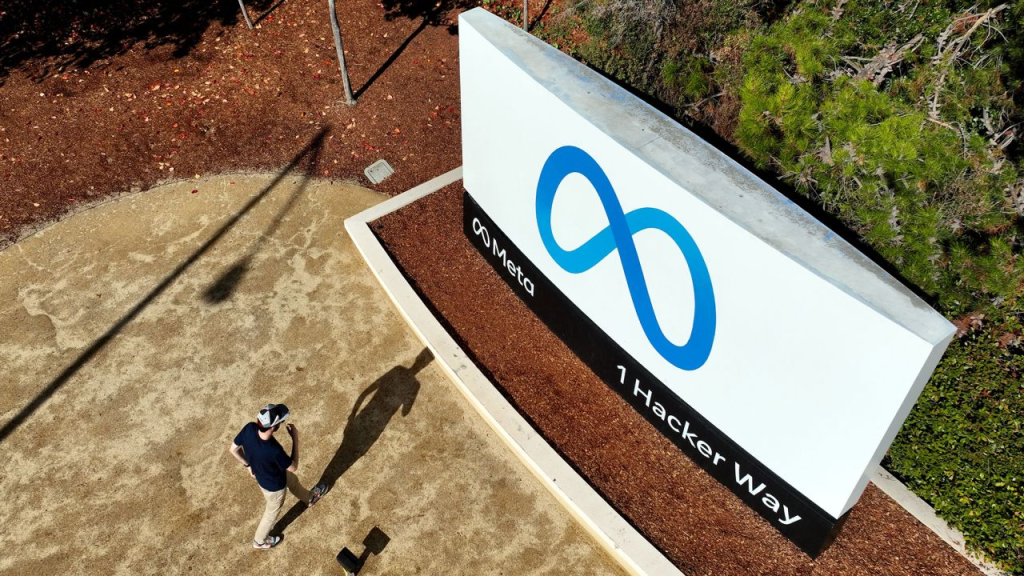FTC Proposes Tough New Rules on Meta’s Use of Personal Data
FTC Proposes Tough New Rules on Meta’s Use of Personal Data

The Federal Trade Commission (FTC) has recently proposed a set of strict regulations regarding the use of personal data by Meta, the parent company of Facebook. These new rules aim to address the growing concerns surrounding privacy and data protection in the digital age.
Under the proposed regulations, Meta would be required to obtain explicit consent from users before collecting and using their personal data. This consent would need to be clear, informed, and easily revocable. Additionally, Meta would be prohibited from using personal data for any purpose other than what was originally agreed upon by the user.
The Federal Trade Commission (FTC) is taking steps to impose new restrictions on how Meta, the parent company of Instagram, can monetize user data. In a landmark $5 billion privacy settlement, the FTC aims to limit Meta’s ability to profit from data collected from users under the age of 18. These proposed rules could have a significant impact on Meta’s data-driven business, particularly as the company seeks to attract younger users and expand into new product areas like virtual reality.
The FTC’s Proposal

The FTC’s proposal includes not only restrictions on Meta’s monetization of data but also stricter regulations on the use of facial recognition technology and a requirement for third-party audits to ensure compliance with privacy obligations. These measures represent some of the most significant impositions on Meta’s business since the 2020 privacy order that resolved the Cambridge Analytica scandal, where up to 87 million users’ information was exposed to a political analysis firm.
Meta’s Response

Meta has been facing increasing scrutiny and legal challenges from multiple states and whistleblowers who allege that the company has not done enough to protect users’ well-being. However, Meta maintains that it has invested heavily in user well-being and has developed numerous tools for parents and teens to manage their experiences with the company’s products.
In response to the FTC’s proposal, Meta has criticized it as a political stunt and singled out the differential treatment between Meta and Chinese companies like TikTok, which operate without similar constraints on American soil. Meta plans to appeal the decision made by District Judge Timothy Kelly to the US Court of Appeals for the DC Circuit.
The Court’s Decision
District Judge Timothy Kelly’s decision not to block the expansion of the privacy settlement allows the FTC to move forward with its proposed rules. This decision has paved the way for the FTC to exercise its authority and potentially bring about significant changes to Meta’s business practices. Despite Meta’s plans to appeal, industry analysts believe that the decision is likely to be sustained.
Potential Impact on Meta’s Business
If the proposed rules are approved, Meta’s ability to monetize user data, especially from users under the age of 18, will be severely limited. This limitation could significantly impact Meta’s data-driven business model and its efforts to attract younger users. Additionally, the stricter regulations on facial recognition technology and the requirement for third-party audits could further hinder Meta’s ability to roll out new products and services until compliance with privacy obligations is demonstrated.
Congressional Response
While the FTC takes action against Meta, US lawmakers have been engaged in lengthy debates without reaching a consensus on legislation addressing the alleged harm to the mental health and privacy of teens caused by companies like Meta. The contrast between the FTC’s proposed rules and the lack of progress in Congress highlights the growing concern over the impact of social media platforms on user well-being and privacy.
The FTC’s proposal also includes provisions for increased transparency and accountability. Meta would be obligated to provide users with detailed information about the types of personal data collected, how it is used, and with whom it is shared. Furthermore, Meta would be required to establish a comprehensive data protection program, including regular audits and assessments to ensure compliance with the regulations.
In an effort to safeguard children’s privacy, the FTC is also proposing that Meta obtain verifiable parental consent before collecting personal data from users under the age of 13. This measure aims to protect vulnerable individuals and ensure that their personal information is not exploited.
Conclusion
The FTC’s proposal is now open for public comment, allowing stakeholders and interested parties to provide feedback and suggestions. The final regulations are expected to be released in the coming months after careful consideration of all perspectives.
The FTC’s proposal to impose tough new rules on Meta’s use of personal data signifies a significant development in the ongoing scrutiny and regulation of social media platforms. With the potential limitations on data monetization, stricter regulations on facial recognition technology, and the requirement for third-party audits, Meta’s business model and growth strategies may face significant challenges. As the legal battle continues, the outcome will have implications not only for Meta but also for the broader landscape of user privacy and well-being in the digital age.




